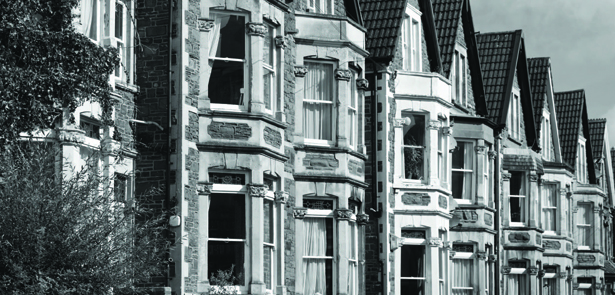Beware the BTL tax

New rules for the way buy-to-let tax relief is dealt with come into effect from April. If you’ve got property investments it’s up to you to understand what these changes mean for you, says Craig Tolliday, Tax Manager at Rawlinsons
At present landlords are able to deduct mortgage interest from their rental income when calculating their rental business profits. These profits are then subject to tax at the appropriate rate, depending on the tax position of the individual landlord. For example, a rental property with income of £15,000 and mortgage interest of £12,000 would leave £3,000 subject to tax. For a basic rate taxpayer (20%), the tax due would be £600. For a higher rate taxpayer (40%), the tax due would be £1,200.
New rules
The new method of relief is being phased in from the 2017/18 tax year and will be fully in place by 2020/21. Instead of deducting the mortgage interest in calculating the rental business profits, the new rules give a reduction of 20% of the mortgage interest from the final tax bill. The result is higher or additional rate taxpayers will lose out, as do some basic rate taxpayers. By 2020/21, using the same example of a rental property with income of £15,000 and mortgage interest of £12,000, under the new rules the £15,000 would be subject to tax without a deduction for mortgage interest. For a basic rate taxpayer (20%), the tax due would be £3,000, from which they will receive a reduction of 20% of the mortgage interest, being £2,400, leaving a net tax liability of £600 (the same as under the current rules). For a higher rate taxpayer (40%), the tax due would be £6,000, from which they will also receive a reduction of 20% of the mortgage interest, being £2,400, leaving a net tax liability of £3,600 (an increase of £2,400 compared to the current rules).
Don’t be fooled!
It may be easy to assume that if you are a landlord currently paying tax at the basic rate then the new rules will have no effect on your tax position. However, this may not always be the case. If you are currently a basic rate taxpayer, you should assess your total taxable income position excluding any deduction for mortgage interest when calculating the rental business profits. Only if, without the interest, your total taxable income still falls within the basic rate band will you not be caught by the changes. Also, it is worth considering whether the increased levels of taxable income under the new rules will affect your entitlements to the personal allowance and/or child benefit.
What can you do?
If you think you may be affected by the changes, there are a few options available:
● Consider paying off some of the mortgages if you can afford to do so, or even switch deals to get lower rates of interest.
● Transfer your properties into a limited company. Companies are not affected by the mortgage interest changes, and are only liable to a flat rate of tax regardless of profit levels (set to fall to 17% by April 2020). There are other considerations and complications with this option, such as looking at your long-term plans, and also potential stamp duty land tax (SDLT) charges on the transfer of the properties to a company.
● If your spouse has less income than you, consider the effect of transferring ownership of some or all of the properties to them. As ever, advice should be taken before going ahead with any of the options above.
Rawlinsons Chartered Accountants Ruthlyn House, 90 Lincoln Road, Peterborough, PE1 2SP. 01733 568321, www.rawlinsons.co.uk















